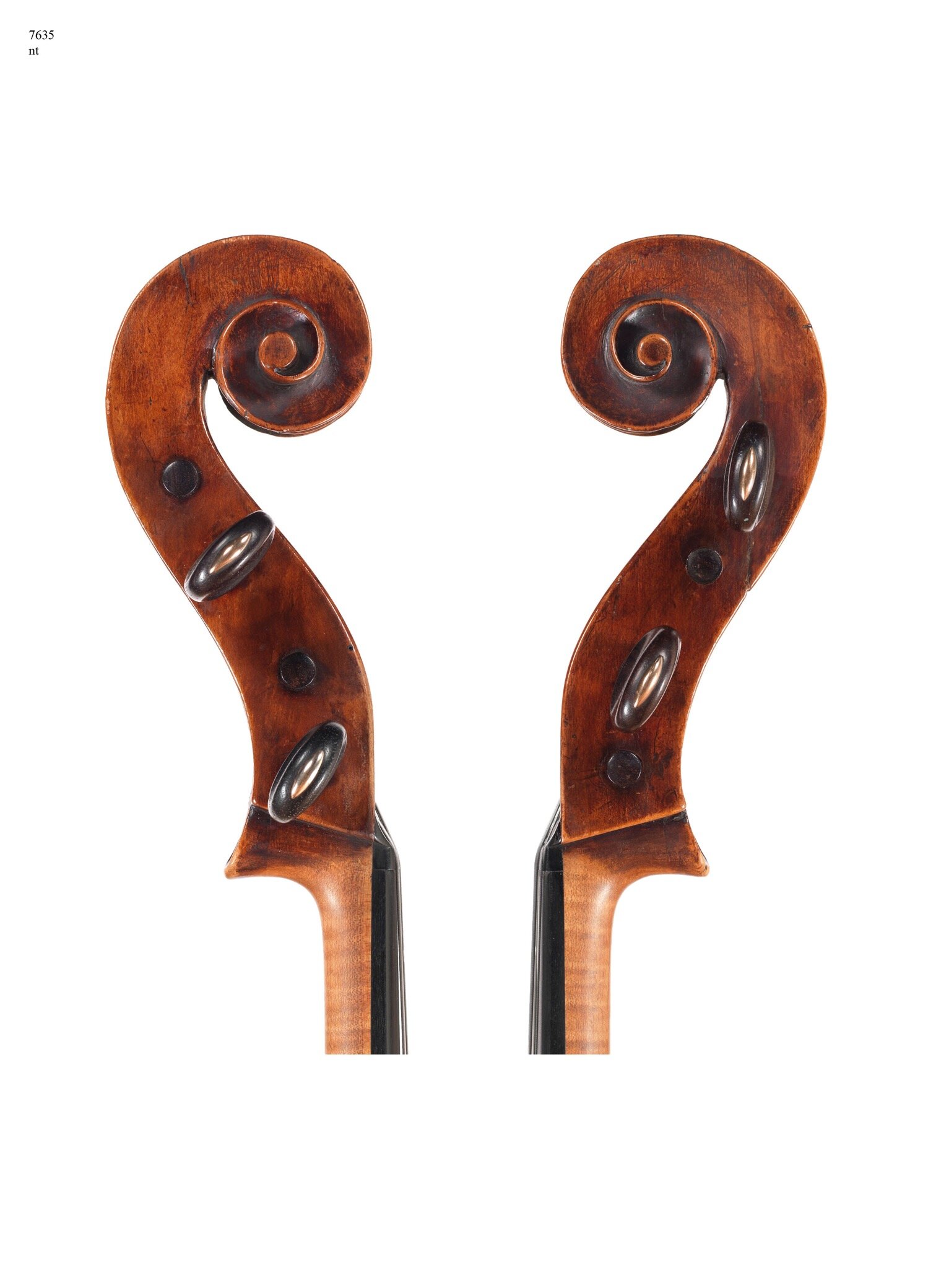

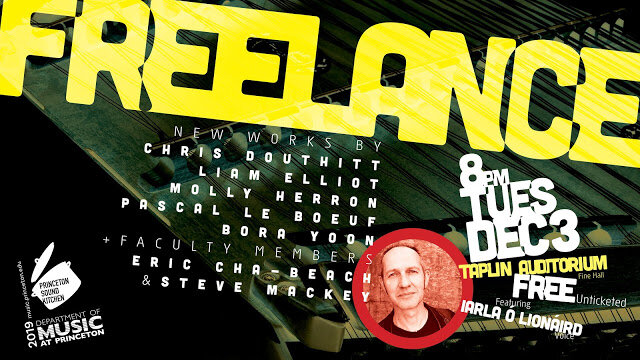

AMOC at the Met's Apollo Circle Benefit 2019
Inspired by the upcoming exhibition "The Last Knight: The Art, Armor, and Ambition of Maximilian I," you are invited to don your heraldic best for the Apollo Circle's annual black-tie benefit celebration. Enjoy dancing, drinks, and special performances. #ApolloCircleBenefit2019 #MetLastKnight
For Members and Non-Members, ages 21–45
The Apollo Circle Benefit is sponsored in part by Nova Octo.
Photo: Madison Voelkel / BFA.com

AMOC Residency at Certain Bird
project development with the AMOC gang in bucolic Stamford, VT
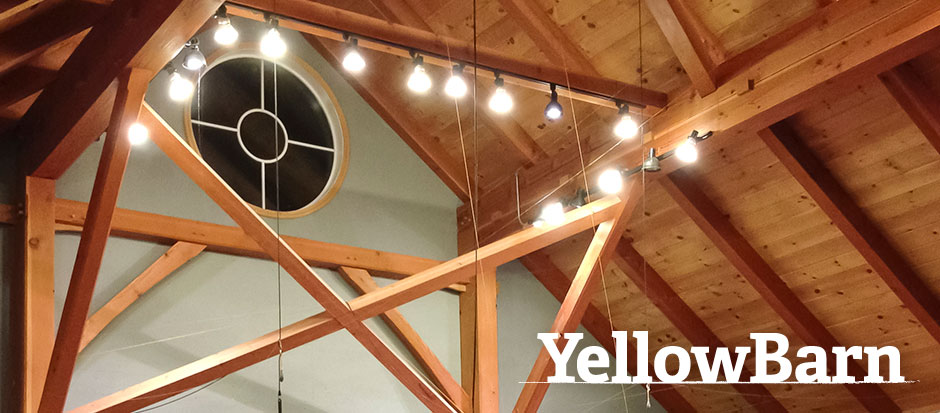
YellowBarn 2019 Summer Season
50TH ANNIVERSARY SEASON
Yellow Barn Festival Concerts July 5-August 3
Summer Gala August 3
Jörg Widmann, Composer in Residence July 22-July 27
Brett Dean, Composer in Residence July 28-August 3
Young Artists Program Concerts June 17, 19, 27 & 28
"Concerts like those at Yellow Barn shouldn't really exist.
And yet they do."—The Boston Globe
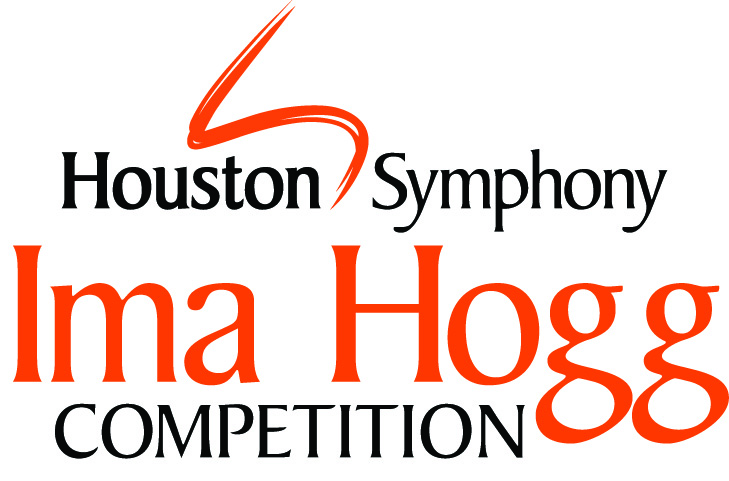
Concerto with Houston Symphony
ABOUT THIS CONCERT
The four most famous notes in history are spun into a colossal epic for the ages in Beethoven’s groundbreaking Fifth Symphony. Plus, catch a rising star with a performance of Bloch’s Schelomo, Rhapsodie hébraïque by cellist Coleman Itzkoff, the silver medalist of the 2019 Ima Hogg Competition.
This concert is sponsored in part by the City of Houston through the Miller Theatre Advisory Board. View all our 2019 summer concerts at Miller Outdoor Theatre.
Location & Parking
Miller Outdoor Theatre is located at 6000 Hermann Park Drive. Parking at Miller Outdoor Theatre is free, but can be limited! Consider riding METRORail to and from the performance.

Chamber Music at Moss Arts Center in Blacksburg, VA
Saturday, June 22, 2019, 7:30 PM
Street and Davis Performance Hall, Anne and Ellen Fife Theatre
Our free summer concerts return, featuring Mozart's Divertimento for String Trio in E-flat Major, K. 563; Mendelssohn's Viola Quintet in B-flat Major, op. 87; and Bolcom's Incineratorag for string quartet.
Free

Chamber Music at Moss Arts Center in Blacksburg, VA
Thursday, June 20, 2019, 7:30 PM
Street and Davis Performance Hall, Anne and Ellen Fife Theatre
Our free summer concerts return, featuring Fauré's Piano Quartet no. 2 in G Minor, op. 45; Shostakovich's Piano Quintet, op. 57; and Schubert's Trio, no. 1 in B-flat Major, D. 471.
Free

Jupiter Symphony Chamber Players: In Mozart’s Time
Monday, June 10, 7:30pm In Mozart’s Time
Christ and Saint Stephen’s Episcopal Church
120 West 69th Street (east of Broadway)
Danbi Um violin
Eunae Koh violin
Dov Scheindlin viola
Meagan Turner viola
Coleman Itzkoff cello
Ji Weon Ryu flute
Vadim Lando clarinet
Karl Kramer horn
HAYDN Divertimento in G Major Op. 5 No. 2 • 1768
~ the flute quartet’s finesse and charm mask its spurious authors
Stephen Fisher in Haydn and the Flute explains, “Lacking authentic pieces by Haydn, publishers manufactured chamber works to sell under his name. Two sets of six quartets for flute, violin, viola, and violoncello are still in circulation. The so-called Op. 5 includes spurious arrangements of the two sextets just mentioned [HII:1 and 11] along with four pieces that have nothing to do with Haydn (Hob. II:D9–11 and G4).”
Franz Xaver RICHTER String Quartet in C Major Op. 5 No. 1 • 1757
~ of historical importance for its early development of melodic interest in the lower strings— the viola and cello are given several solo episodes, resulting in a structural balance of the 4 parts, which was remarkably advanced for its time, presaging the Classical period
A German of Moravian-Bohemian descent, Richter was one of the foremost composers of the Mannheim school, which introduced musical innovations that led to a change of musical style throughout Europe, and ultimately influenced Haydn and Mozart.
Antonio ROSETTI Quintet in F Major • circa 1789
~ a tuneful, sophisticated piece for the unusual combination of clarinet, horn, violin, viola, and cello
Born in Bohemia, Rosetti studied with Jesuits in Prague and began his career as a double bass player in the court of Oettingen-Wallerstein under Prince Louis Kraft Ernst, a fanatical (albeit parsimonious) music lover. While there, he not only began composing a wide range of instrumental music for the court, but also memorized the instrumental music of Haydn (his model), Stamitz, and Mozart. Eventually he was appointed kapellmeister for the Hofkapelle and developed the court orchestra into one of the best ensembles in Europe within a very short time. A trip to Paris in 1781‑82 greatly enhanced his reputation as one of the leading composers in Europe by providing opportunities for publishing his music, performing it, obtaining commissions, and networking, while exposing him to a wider range of styles, which he soon incorporated into his own work. The New Grove Dictionary states, that “Rosetti’s highly idiomatic writing for the horn contributed much to the development of a melodic style for the instrument.... [His] contemporaries ranked him with Haydn and Mozart.”
A podcast by Sterling Murray (author of The Career of an Eighteenth-Century Kapellmeister: The Life of Antonio Rosetti) may be heard here: https://newbooksnetwork.com/sterling-murray-the-career-of-an-eighteenth-century-kapellmeister-the-life-and-music-of-antonio-rosetti-u-rochester-press-2014/
MOZART String Quintet in G minor K. 516 • 1787
~ among the greatest of string quintets in a key which he reserved for works of dramatic intensity and deep personal statement
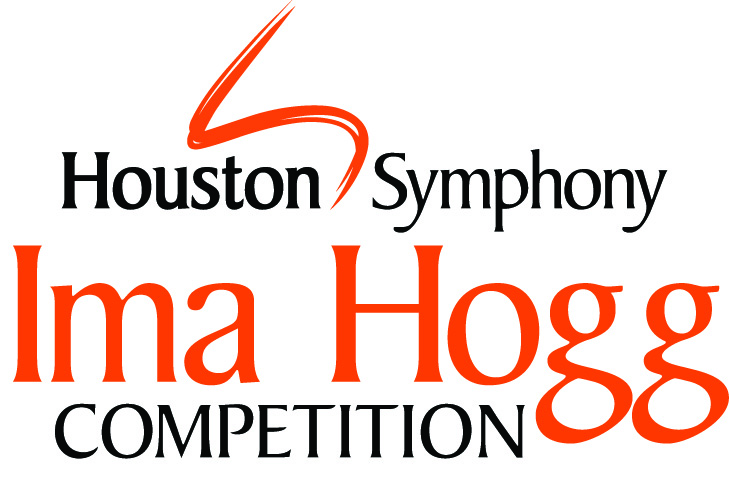
2019 Ima Hogg Competition
Of the nine contestants selected to perform in the 2019 Semi-Finals competition on May 30, four finalists were chosen to advance to perform with the Houston Symphony on June 1. The winner of the finals receives the Grace Woodson Memorial First Prize and a $25,000 award.
Vicki West, 2019 Competition Chair
John N. Neighbors, Honorary Chair
2019 COMPETITION RESULTS
1st Prize: Rachel Lee Hall, harp
2nd Prize: Coleman Itzkoff, cello
3rd Prize: Chloe Tula, harp
4th Prize: Katherine Audas, cello
Audience Choice Award: Katherine Audas, cello
Artistic Encouragement Award: Coleman Itzkoff, cello

Lost Mountain@LaMaMa Experimental Theatre
Bobbi Jene Smith | Lost Mountain
May 16 - May 19, 2019
Ellen Stewart Theatre | 66 East 4th Street (2nd Floor)
Thursday to Saturday at 7PM; Sunday at 3PM
$25 Tickets; $20 Student/Senior Tickets [+$1 Facility Fee]
Running Time: 65 minutes
Directed by Bobbi Jene Smith
Lost Mountain draws inspiration from the catastrophic and sublime machinations of geological forces to create an abstract and emotionally visceral narrative. A series of vignettes with live music brings together twelve remarkable artists from around the world including former Batsheva and Punch Drunk performers.
YellowBarn Fundraiser: Carter String Quartet
Mélanie Clapies, Emma Frucht, Roger Tapping, and Coleman Itzkoff perform Elliott Carter’s First String Quartet in a private event for YellowBarn patrons.

AMOC@National Sawdust
The American Modern Opera Company is an opera company on a new model. The company serves as the artistic home for seventeen of the most exciting singers, dancers, and instrumentalists of the rising generation. AMOC’s artists are committed to reimagining what it means to make opera in the twenty-first century: unlike a typical opera company, which features a constantly-changing roster of artists in one particular theater, AMOC focuses on deep, long-term artistic relationships among its core members. The company’s goal is to create a body of new, discipline-colliding music-theater works, conceived, developed, and performed by our artists.
In AMOC’s inaugural season, the company launched a new festival, the Run AMOC! Festival, at the American Repertory Theater in Cambridge, MA in December; held its first major teaching and performance residency at Harvard University in February; performed at the Big Ears Festival in Knoxville, TN, in March; and was Artist-in-Residence at Park Avenue Armory in April. Future engagements include performances at the Metropolitan Museum of Art (both The Met Fifth Avenue and The Met Cloisters), The Clark Art Institute, Rockport Chamber Music Festival, and a second, expanded Run AMOC! Festival at the American Repertory Theater, as well as commissions from the Philharmonia Baroque Orchestra and San Francisco’s ODC Theater.

Jupiter Symphony Chamber Players: Batons at Rest
April 8 Batons at Rest
Stephen Beus piano
Elizabeth Fayette violin
Coleman Itzkoff cello
Vadim Lando clarinet
Karl Kramer horn
Gina Cuffari bassoon
Arturo TOSCANINI 2 Songs • 1885
• “Desolazione” (Desolation) and “Son gelosa” (I am jealous) ~ for soprano and piano by the Italian conductor with the phenomenal memory
George SZELL Piano Quintet in E Major Op. 2 • 1911
• an appealing late Romantic work written by a very mature 14-year-old
The Hungarian-born American conductor of the Cleveland Orchestra imposed stern discipline, drilling his musicians mercilessly, but won their devotion by his own fierce dedication. New York Times critic Peter G. Davis, in a review of a concert of music by Szell and Mitropoulos presented by Jens Nygaard at Carnegie Recital Hall in 1975, commented: “Szell was such an autocratic conductor and forbidding personality that the jolly, unbuttoned romanticism of his Piano Quintet, a cross between late Dvorak and early Richard Strauss, comes as quite a shock. But since Szell was only [14] when he wrote the work (he gave up composing before he was 20), its derivativeness is less surprising than its precociousness.” Jens was the pianist at this concert.
Dmitri MITROPOULOS “Kassiani” • 1919
• the young Greek conductor’s special, dramatic, beautiful song dedicated to Katina Paxinou, with whom he had a passionate love affair ~ for soprano and piano
Davis, in the same New York Times review, described “Kassiani” as “the tortured monologue of a sinning woman...[it] betrayed more than a trace of Ravel and Mussorgsky, but these influences have been thoroughly absorbed by a really imaginative creative mind.” Mitropoulos, considered by some to be the equal of Toscanini and Wilhelm Furtwängler, was noted for having a photographic memory (he conducted without a score, even during rehearsals) and for his solitary lifestyle due to his deeply religious, Greek Orthodox beliefs.
Jens NYGAARD Cadenza for Mozart Piano Concerto No. 24 in C minor K. 491 • 1996
• composed for William Wolfram, who described it as “really remarkable. It was everything that Jens IS. It’s a remarkable cadenza, extremely original—like nothing else. It was HIM in a cadenza.”
Felix WEINGARTNER Octet in G Major Op. 73 • 1925
• virtually a chamber symphony for clarinet, horn, bassoon, 2 violins, viola, cello, and piano in the chromatic idiom of Liszt (his teacher), Wagner, and the German late Romantics—in turns poignant, dramatic, yearning, and adorned with lyricism ~ the much-revered Austrian maestro, noted for his conducting with clarity and economy of movement, had five wives

Da Camera Houston: The Veil of Orpheus: Cy Twombly and Music
The Veil of Orpheus: Cy Twombly and Music
Pierre Henry: The Veil of Orpheus
Matthias Pintscher: Study No. 1 for Treatise on the Veil
Monteverdi: Possente spirto from Orfeo
Harrison Birtwistle: Orpheus Elegies for countertenor, oboe and harp
Matthew Aucoin: This Earth and excerpts from the opera Eurydice (2019)
Anthony Roth Costanzo, countertenor; Kelly Markgraf, baritone; Matthew Aucoin, piano and guest composer; with the participation of REMLABS, Kurt Stallmann, director
A rare showing of Cy Twombly’s monumental painting, The Treatise on the Veil, is the occasion for this unique musical event at the Menil. Da Camera introduces America’s rising star composer Matthew Aucoin to Houston with an intimate preview of his opera, Eurydice, prior to its premiere at the Metropolitan Opera in 2019-20, and welcomes countertenor Anthony Roth Costanzo and baritone Kelly Markgraf in their Da Camera debuts.
The timeless Greek myth of Orpheus entering the underworld in search of his deceased beloved, Eurydice, has inspired artists for centuries — from the beginning of opera in Italy to today. From Monteverdi to early electronic music through late 20th-century compositions, this program explores the powerful influences of mythology on visual art and music — in time past and time present.
“a bona-fide star” – The New Yorker on Anthony Ross Costanzo
“if contemporary opera has a rising wunderkind, then Aucoin has to be it” — The New York Times on Matthew Aucoin
Included in the Full Season, Da Camera Chamber Music series and the Da Camera at the Menil series. Or Build Your Own series of any 6-9 concerts.

CHAYA CZERNOWIN and ROBERT SCHUMANN: A DREAM WHICH HAUNTS YOU STILL
Robert Schumann - PIANO QUINTET in E-flat major, Op. 44
for piano and string quartet
Movses Pogossian, violin
YuEun Kim, violin
Liam Brolly, viola
Coleman Itzkoff, cello
Marisa Gupta, piano
Chaya Czernowin - HIDDEN (West Coast premiere)
for string quartet and electronics
JACK Quartet
Serge Lemouton (IRCAM), electronics
"Now the sonorities should fade away, grow fainter and dimmer, and you are left simply in the presence of a dream which haunts you still."
- Alfred Cortot (on Schumann's Kinderszenen)
Of her new work for string quartet and electronics, composer Chaya Czernowin writes:
"HIDDEN is an attempt to get at what is hidden underneath expression or underneath music. It attempts to reach even further where there is a barely audible presence, which is on the edge of our perception. We do not know this presence, and it might be foreign, undecipherable. HIDDEN is a very slow-moving 45-minute experience transforming the ear into an eye. The ear is given space and time to observe and orient itself in the unpredictable aural landscape. It is an underwater, submerged landscape of rocks, inhabited by low vibrations which are felt rather than heard and with layers and layers of peeling away fog. Monolithic groups of sonic ‘rocks’ are seen/heard from various angles. The piece is about observation; it tries to trace/perceive/sense the emergence of expression."
This piece, performed by the riveting JACK Quartet and IRCAM (electronics by the composer and Carlo Laurenzi), finds a perhaps unexpected historical companion in Robert Schumann's transcendental Piano Quintet. Though the Schumann and Czernowin serve as archetypal works of the Romantic and High Modernist eras respectively, they both seem to employ sound as a means of yearning for something beyond.

Chamber Music at the Steinway Piano Gallery LA
Program:
6 Studien in kanonischer form (Schumann arranged by Kirchner)
Brahms c minor Trio
Marisa Gupta, Piano
Movses Pogossian, violin
Coleman Itzkoff, Cello
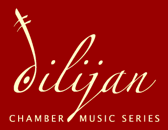

Barber Concerto with Master Sinfonia Chamber Orchestra
Season Program 3
Saturday, March 9, 2019 – 8:00 p.m. – Valley Presbyterian Church
Sunday, March 10, 2019 – 2:30 p.m. – Los Altos United Methodist Church
Rossini Semiramide Overture
BarberConcerto for Cello and Orchestra featuring Coleman Itzkoff, cello
BeethovenSymphony No. 3 in Eb major “Eroica”

Jupiter Symphony Chamber Players: 2 Geniuses
Max Levinson piano
Vadim Gluzman violin
Kobi Malkin violin
Ayane Kozasa viola
Coleman Itzkoff cello
Xavier Foley double bass
Vadim Lando clarinet
Eric Reed horn
Gina Cuffari bassoon
Erich Wolfgang KORNGOLD Piano Trio in D Major Op. 1 • 1910
• astonishing achievement by the 12-year old, who was called a genius by Mahler when he was nine
Written in the highly expressive language of the Viennese fin de siècle after two years of study with Alexander Zemlinsky, the lyrical tunes in a thoroughly modern harmonic language also show evidence of the traditions of Brahms and Strauss. The premiere in Vienna was performed by the already famous Bruno Walter, Arnold Rosé (concertmaster of the Vienna Philharmonic for more than 50 years), and cellist Friedrich Buxbaum (of the Vienna Philharmonic and Vienna State Opera). Korngold was born in Moravia, educated in Vienna, and achieved success as a composer of opera and concert music throughout Europe. Upon leaving Nazi Germany, he made a name for himself in Hollywood, and was a pioneer in the development of the classical Hollywood film score, providing music for at least 16 movie scores, two of which won Oscars.
SCHUBERT Octet in F Major D. 803 • 1824
• of heavenly length at just under an hour, it’s a marvelous, cheerful journey of rich invention, sublime melodies, and complex textures ~ for clarinet, horn, bassoon, string quartet, and double bass

The Joy of Music Continues: Chamber Music with Lucy Shelton
From Jan de Gaetani, through to Lucy and on to the next generation...repertoire of Berio, Foster, Ives, Knussen, Rochberg, Villa Lobos, maybe even Rossini! Lucy sings along with many collaborators and her students. In MERKIN which Lucy was the first to rent 40 years ago!
Ravel Chansons Madecasses with Gil Kalish, Rosie Gallagher, and Lucy Shelton

French Treats w/Jupiter Symphony Chamber Players
20 Mondays at 2:00 PM & 7:30 PM
To purchase Tickets ~ $25, $17, $10
please call (212) 799-1259 or buy at the door
or e-mail admin@jupitersymphony.com
or order tickets with our printable ticket order form (pdf)
François-Joseph GOSSEC Flute Quartet No. 1 in D Major Op. 14 • 1770 • (1734-1829)
• reflecting the music of Rameau and Stamitz of the Mannheim School, the quartet (from a set of 6) is full of lively dialogue shared almost equally among the four instruments
The Parisian expat from Belgium was a prominent composer, conductor, and professor of composition at the Paris Conservatoire, and the founder of the Concert des Amateurs. He was a successful and prolific composer of instrumental music, including symphonies and chamber music. Mozart, upon meeting him in 1778, described him to his father as “A very good friend and at the same time a very dull fellow.” Mozart was, however, greatly impressed with Gossec’s Requiem, for which he is best known. John H. Baron, a music professor, observed that “Gossec’s quartets are melodically and rhythmically simple and evince the rare influence of both French rationalism and opera buffa.”
Ambroise THOMAS String Quartet in E minor Op. 1 • 1833
• lucid and melodically fertile, the quartet reveals the influence of Rossini and Paganini (it was written during the year he spent in Rome) and at the same time confirms his admiration for Beethoven
Thomas is remembered today for his opera, Mignon, which had a run of over 1000 performances at the Opéra-Comique between 1866 and 1894, making it one of the most successful operas in history. Born to parents who taught music, Thomas entered the Paris Conservatoire in 1828, while continuing his piano studies with the virtuoso pianist Friedrich Kalkbrenner. In 1832, he won the Prix de Rome, which enabled him to travel to and study in that city for a year. He took with him a love for Mozart and Beethoven, but once in Rome he became an ardent admirer of the Italian cantilena and the melodic tradition. It was during this sojourn that he wrote his chamber music—a piano trio, a string quintet, and a string quartet.
Gabriel FAURÉ La bonne chanson Op. 61 • 1898
• a song cycle of 9 beautiful, complex mélodies based on poems by Paul Verlaine ~ for voice, string quartet, and piano
Among his most masterful compositions, much of the cycle (originally for voice and piano) was written in the summers of 1892 and 1893, when Fauré was staying in Bougival as a guest of the banker Sigismond Bardac and his wife, the soprano Emma Barda. Fauré fell in love with Emma, the inspiration for the spontaneity of the cycle, its joyful virility, and optimism. Emma, who later married Debussy, sang the newly-composed material for Fauré each day. A private premiere was held at the home of Countess de Saussine on 25 April 1894 with the lyric tenor Maurice Bagès, and its first public performance a year later was sung by Jeanne Remacle with Fauré at the piano. La bonne chanson was received poorly, and Saint-Saëns thought Fauré (his pupil) had gone nuts by writing music with such exhaustingly quick key changes.
Claude DEBUSSY Piano Trio in G Major • 1879
• written at age 18, the charming and graceful work is influenced by two composers he admired—Franck and Schumann
Debussy composed the Trio in Fiesole, near Florence, during the summer of 1880 while employed by Nadezhda von Meck (Tchaikovsky’s devoted patron) to teach her children. Madame von Meck’s entourage was joined by recent graduates of the Moscow Conservatory, including a violinist and cellist, who were asked to perform piano trios with Debussy every evening. It was during this time that he composed his only piano trio. The work was not published until 1986 after the manuscript (which was thought lost) was found in 1982. Considerable editorial work was needed to piece it back together from various sources.

Sunday Chatter: Duo Recital with Conor Hanick
The Kosmos: Albuquerque, NM; 10:30 AM
Eric WUBBELS: Gretchen am Spinnrade for cello and piano
Arvo PÄRT: Speigel im Speigel
Amy WILLIAMS: Stop / Yield
Claude DEBUSSY: Sonata for cello and piano in D minor
Conor Hanick, Piano

SITE Santa Fe: Duo Recital with Conor Hanick
The Site Museum; Santa Fe, NM; 10:30 AM
Eric WUBBELS: Gretchen am Spinnrade for cello and piano
Arvo PÄRT: Speigel im Speigel
Amy WILLIAMS: Stop / Yield
Claude DEBUSSY: Sonata for cello and piano in D minor
Conor Hanick, Piano

Matt's Playlist: Echoes of the Future
MATT’S PLAYLIST: ECHOES OF THE FUTURE
A Jacobs Masterworks Concert
(Note: a shorter version of this concert is performed at 6:30pm on Thursday, January 24.)
Matthew Aucoin, conductor
Rod Gilfry, baritone
Coleman Itzkoff, cello
REICH: Excerpt from It’s Gonna Rain
ADÈS: These Premises Are Alarmed
HAYDN: "Introduction" from The Creation
BEETHOVEN: Mvt. I from Symphony No. 1 in C Major, Op. 21
AUCOIN: "Prologue" from Crossing Suite
SIBELIUS: Mvt. IV from Symphony No. 4 in A minor, Op. 63
SAARIAHO: Spins and Spells
RAMEAU: “Entrée de Polymnie" from Les Boréades
MAHLER: “Ich bin der Welt abhanden gekommen” from Rückert Lieder
NORMAN: Play: Level 1
STRAVINSKY: "The Shrove-Tide Fair" from Petrushka (1947 version)
AUCOIN: “Crossing Brooklyn Ferry” from Crossing Suite
Los Angeles Opera’s first ever “Artist-in-Residence” Matthew Aucoin (b. 1990) has some music he wants to share with you - from the past, from the present and predicting the future. This playlist includes music by Beethoven, Schubert, Stravinsky, Lili Boulanger and others. Internationally acclaimed baritone Rod Gilfry make a special appearance to sing selections from Aucoin's own opera, Crossing, based on the poetry of Walt Whitman.
Programs, artists, dates, prices and availability are subject to change.
"Matt's PLAYLIST" made THE LIST! The New York Times has highlighted Matthew Aucoin and this concert as part of their annual Classical Music Fall Season Preview!

Matt's Playlist: Echoes of the Future
MATT’S PLAYLIST: ECHOES OF THE FUTURE
A Jacobs Masterworks Concert
(Note: a shorter version of this concert is performed at 6:30pm on Thursday, January 24.)
Matthew Aucoin, conductor
Rod Gilfry, baritone
Coleman Itzkoff, cello
REICH: Excerpt from It’s Gonna Rain
ADÈS: These Premises Are Alarmed
HAYDN: "Introduction" from The Creation
BEETHOVEN: Mvt. I from Symphony No. 1 in C Major, Op. 21
AUCOIN: "Prologue" from Crossing Suite
SIBELIUS: Mvt. IV from Symphony No. 4 in A minor, Op. 63
SAARIAHO: Spins and Spells
RAMEAU: “Entrée de Polymnie" from Les Boréades
MAHLER: “Ich bin der Welt abhanden gekommen” from Rückert Lieder
NORMAN: Play: Level 1
STRAVINSKY: "The Shrove-Tide Fair" from Petrushka (1947 version)
AUCOIN: “Crossing Brooklyn Ferry” from Crossing Suite
Los Angeles Opera’s first ever “Artist-in-Residence” Matthew Aucoin (b. 1990) has some music he wants to share with you - from the past, from the present and predicting the future. This playlist includes music by Beethoven, Schubert, Stravinsky, Lili Boulanger and others. Internationally acclaimed baritone Rod Gilfry make a special appearance to sing selections from Aucoin's own opera, Crossing, based on the poetry of Walt Whitman.
Programs, artists, dates, prices and availability are subject to change.
"Matt's PLAYLIST" made THE LIST! The New York Times has highlighted Matthew Aucoin and this concert as part of their annual Classical Music Fall Season Preview!

Rush Hour Playlist w/San Diego Symphony
RUSH HOUR 2.0: RUSH HOUR PLAYLIST
A Jacobs Masterworks Rush Hour 2.0 Concert
Matthew Aucoin, conductor
Rod Gilfry, baritone
Coleman Itzkoff, cello
REICH: Excerpt from It’s Gonna Rain
ADÈS: These Premises Are Alarmed
HAYDN: "Introduction" from The Creation
BEETHOVEN: Mvt. I from Symphony No. 1 in C Major, Op. 21
AUCOIN: "Prologue" from Crossing Suite
SAARIAHO: Spins and Spells
RAMEAU: “Entrée de Polymnie" from Les Boréades
MAHLER: “Ich bin der Welt abhanden gekommen” from Rückert Lieder
STRAVINSKY: "The Shrove-Tide Fair" from Petrushka (1947 version)
AUCOIN: “Crossing Brooklyn Ferry” from Crossing Suite
Los Angeles Opera’s first ever “Artist-in-Residence” Matthew Aucoin (b. 1990) has some music he wants to share with you - from the past, from the present and predicting the future. Internationally acclaimed baritone Rod Gilfry make a special appearance to sing selections from Aucoin's own opera, Crossing, based on the poetry of Walt Whitman.
Note: This "Rush Hour 2.0" concert begins at 6:30pm and runs less than 90 minutes with no intermission. Programs, artists, dates, prices and availability are subject to change.

Chamber Music@AMANDA + JAMES
A Program of Schubert, Schoenberg, & Beethoven with violinist Brian Hong & Pianist Tomer Gewirtzman
AMANDA + JAMES is a New York-based company dedicated to producing the work of young artists. Through monthly meetings, we provide a space for this community
Location TBA